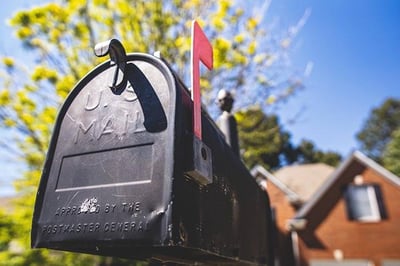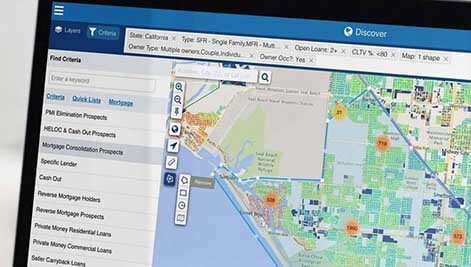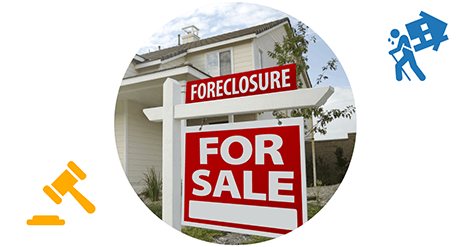What You Need to Know About Non-Performing Notes Investing

Banks loan money to individuals in order to buy a house or they may place get a home equity line of credit (HELOC) to be used for any purpose they choose.
This loan is based on the home’s equity. If the borrower stops paying the loan, they are in default. The bank can either foreclose on the property or sell the loan to an investor.
Try PropertyRadar FREE For 3 Days
|
Note investors buy those non-performing or defaulted loans from the banks at a large discount.
For example, the investor may buy a $100,000 loan for $20,000. The investor then contacts the borrower to negotiate a loan modification, short payoff, or a variety of other solutions.
The main goal is to achieve a good return on the capital invested.
Since the investor is buying the loan at a discount, they can offer favorable terms to the borrower and the transaction can be a win-win for both the investor and the borrower. The investor can achieve great returns (ROI) with this type of investment.
Note investing is a great niche that fits certain personality types. If you prefer spreadsheets and databases, this might be a good fit for you.
Most of the work can be done from your desk. Successful note investors need to be like a private investigator. They need to find out all they can about the property and the borrower in order to be aware of all the factors that affect the ability to make money on the deal.
Flipping properties may require a lot of driving to find the deals and then once you buy them, these properties need to be rehabbed and sold.
Some people are not cut out to chase deals all over the place, sometimes driving an hour or two to go see a house. Managing contractors can be a handful.
They can be unreliable and require a certain amount of supervision. Not everyone has these skills.
In this post, we'll cover:
- Four Benefits to Note Investing
- Five Challenges to Note Investing
- What Skills Are Needed to Be a Successful Note Investor?
- Capital Required for Note Investing
- How to Find Notes
- Differentiators – What sets you apart as a Note Investor?
- How Do You Scale Note Investing?
- Summary
- How to Find Note Investments
 Four Benefits to Note Investing
Four Benefits to Note Investing
It's important to keep in mind that non-performing notes are loans where the borrower is behind on payments or in default, unlike performing notes where payments are made on time.
Dealing with non-performing loans, known as NPLs, can lead to financial losses for lenders due to missed payments or defaults.
NPA, or Non-Performing Asset, encompasses various types of non-performing loans and other assets like non-performing bonds.
It requires a lot of effort and resources to manage, including possibly going through legal processes for recovery, which can be both time-consuming and expensive.
Recognizing these challenges highlights why private loan investing or private note investing can be beneficial.
There are four main pros or benefits to private loan investing or private note investing:
- Once the loans are performing, they produce significant cash flow and a great yield (ROI).
- If the investor forecloses on a property, it becomes an REO. The investor can sell the property or keep it as a rental. Typically, the property is acquired at a discount so it can be sold for a profit. If the investor decides to hold it as a rental, they may be able to take over payments on the existing senior loan. This is known as “subject to” financing.
- Work from home or office. Notes typically don’t require any travel. They can be managed from your desk over the phone, mail, and email.
- No tenants, toilets, or termites. Investors who own rentals are always dealing with these issues. Note investors don’t get calls saying the toilet is stopped up. Send a plumber. They just get a check in the mail.
Five Challenges to Note Investing
- Notes are hard to source. There is no MLS for note investors. Most notes are bought through relationships and referrals. Some good deals on notes can be found by a mail campaign. Beware of lists being sent out by parties that are not a principal to the transaction. Sometimes they are called “Joker Brokers”.
- Note investing has become a popular niche and product is scarce. Consequently, prices are higher. It’s a supply and demand issue.
- Due diligence can be complicated and time-consuming. The chain of title needs to be reviewed. Are all the assignments and allonges complete? Is there a pay history back to origination provided? Is there any equity? If buying a 2nd position note, what’s the balance and status of the Senior lien? These are just a few of the considerations.
- Notes are a depreciating asset. As they amortize the balance is reduced whereas real property (homes) are an appreciating asset. Most homes go up in value over time.
- Note investors may have to deal with legal issues. Borrowers may contest a foreclosure and bring a lawsuit. Also, regulations on foreclosure vary from state to state. The investor needs to be familiar with these regulations in all states they hold notes in. If you’re in this business, you must be willing to deal with lawyers and legal issues.
- If the investor wants to be involved in loan workouts, they need to have negotiating skills and be comfortable with talking to borrowers. Not everyone is a people person. Loan servicers can be used to do the workouts, but they may not be as effective as the actual note holder doing it. If you own the loan, you’re going to keep a close eye on it and move the process along quickly. Even once the loans are performing, they may again become delinquent and require another round of negotiations.
 What Skills Are Needed to Be a Successful Note Investor?
What Skills Are Needed to Be a Successful Note Investor?
It's critical to have a thorough knowledge of real estate including title, valuations, foreclosure, and property rehab.
The investor also needs to have a complete understanding of mortgages including amortization schedules and all legal requirements such as RESPA (Real Estate Settlement Procedures Act) and FDCPA (fair debt collection practices act).
It’s important to have excellent financial calculator skills. This will be important when negotiating loan modifications so you can be sure to make a decent return on the investment.
The note investor must be willing to call borrowers that haven’t made a payment in years and try to negotiate a loan modification or other agreement such as a reduced payoff or cash for keys.
Be organized. Most note investors use a CRM database to keep track of loans, conversations, letters, payments, and contact information.
Some buy servicing software to keep track of payments, create amortization schedules, and send statements and other necessary forms.
Capital Required for Note Investing
The amount of capital required depends on how committed you are to note investing. If this is a part-time job where you’re doing this as a side business, an amount of around $100k is adequate to get started.
As you become more experienced and more comfortable with the business, most investors begin to raise capital from investors and eventually grow the business to where they may have a portfolio worth millions of dollars.
Keep in mind that there will be expenses associated with investing in notes. The investor may have to hire attorneys to foreclose on a property or be represented in a borrower bankruptcy.
Other costs included making payments on a Senior mortgage if you are the junior lienholder. It may be necessary to pay property taxes if they become delinquent.
A general rule of thumb is to set aside 20% of your capital for expenses that may be incurred while managing notes. If you have $100k to invest, buy $80k worth of notes and keep $20k for expenses.
Some note investors have started out with almost no capital. They searched online services like PropertyRadar to find good note deals, contacted the note holder and negotiated a price, then shopped that deal to note buyers they knew.
In essence, they became a note broker and could make a sometimes-significant fee on the transaction.
How to Find Notes
 Direct mail.
Direct mail.
A great source for notes is private noteholders. They may have loaned money to a friend or family member and have not been paid in months or years, but don’t know how to go about foreclosing on the property, or they don’t want to create an uncomfortable situation at the Thanksgiving dinner table. We mail to these noteholders and make an offer to buy their note.- Private note holder (No Foreclosure)
An online service such as PropertyRadar can be used to search for private noteholders with a certain parameter, such as a date range (recording date), geographic location (city or county), size of the loan ($50k to $100k), loan position (1st or senior lien, 2nd or junior lien). - Private note holder (foreclosing or being foreclosed on)
PropertyRadar can also be used to search for any private notes that are foreclosing on the property that was used as collateral or a Senior Lien may be foreclosing on a property that the Junior lien holder has a loan on. Some noteholders have “given up” on a loan and stuck it in a file cabinet and forgot about it. They receive our letter and have an opportunity to get some “free money.” One of the benefits of this buying method is that there’s rarely any competition. If the note buyer can meet the seller’s expectations, they can make a deal and buy the note. Sometimes we try to buy one note from a seller and find out he has a dozen notes. We can buy the entire portfolio. - Brokers
There are many reputable Brokers in the note investing business. Attend note conferences and meet some of these brokers and get on their email list. Ask other note investors if they are selling any notes. Ask who they buy from. They might be nice enough to share their sources or you might be able to do a joint purchase. Combine your funds to buy a note pool that either of you alone could not buy.
Ask the brokers to add you to their bid list and to send you notes to bid on when they become available. The disadvantage to this is that it can be very competitive. When multiple people are bidding on the same note, the purchase price can get expensive - Referrals
Let everyone around you know that you’re interested in notes. Attend real estate investing groups and get to know the other investors. Almost everyone comes across someone who wants to liquidate a note. - Direct from Banks and Credit Unions
Investors can sometimes buy notes from smaller, local banks or credit unions if they have local management that is willing to talk with local investors. Do not expect to buy notes directly from large, nationally known banks. These large banks pool $10 million and over worth of loans out to bid. - Websites and servicers
There are a number of websites listing notes for sale. Since these are publicly available the note cost may be on the high side and some buyers will pull notes off the website if the expected price point is not met. The buyer could spend a lot of time on due diligence and still not be able to buy any notes. Some note servicing companies also offer notes for sale. - Mentoring programs
Be careful of “mentoring programs” that will also sell you a note. The note is usually priced at a very expensive price point and may have hidden defects that are discovered later. Usually, the “Mentor” is the one who makes a big profit on the deal.
Differentiators – What sets you apart as a Note Investor?
Do what you say you’re going to do. Send the offer when you say you will do it. If you can’t make a certain date, let the Seller know.
Fund the deal per the terms of the contract. Communicate well and be reliable. Develop a great reputation. It takes years to build a good reputation and only days to destroy it.
Develop creative ways to buy notes such as direct mail. Very few investors take the time and effort to build a database for a mail campaign.
PropertyRadar is an integral part of this effort. There is significantly less competition when buying notes in this manner, so pricing is much better.
Be open to a wide variety of note investing opportunities as long as it’s something you’re capable of executing. If you primarily buy notes on single-family homes but a commercial deal comes along, give it some consideration.
Even if you don’t buy it, maybe you can broker it off to someone who does commercial deals. Try to see opportunities that someone else might not see. Think outside the box!
How Do You Scale Note Investing?
Get “hands-on” experience with note investing. Start small and work your way up to bigger deals. Build relationships with other investors in your area.
They can provide the funding to do larger deals and also help with due diligence. These investors have a lot of experience and can help you determine if a deal is worth doing or not.
As you scale, you will need to have better systems to manage notes. The spreadsheets will become inadequate and cumbersome.
That’s when the investor will need to switch to a CRM-type database. Larger investors may also service most of the notes they own. To do you will need to buy loan servicing software.
Summary
Note investing can be a very lucrative niche in the realm of real estate investing. It may be a great fit for your own particular skills and personality. It can provide long-term cash flow at a great yield.
It will often provide an opportunity to acquire houses at below-market prices that can be sold or held as rentals. Frequently the investor can take over payments on existing financing.
Try PropertyRadar FREE For 3 Days
|
Author Information
 Gerald is President of The Lemoine Group, Inc, a private investment firm founded in 2005 and located in Orange County, CA. The Lemoine Group invests primarily in non-performing junior liens with the intention of converting these loans to performing loans or liquidating the asset. The Lemoine Group also holds a multi-million-dollar rental home portfolio of properties located in Southern California. As an experienced note investor, Gerald is an expert at the acquisition, management, and liquidation of performing and non-performing notes nationwide. He has been involved in the purchase of over 1,000 notes with a balance of approximately $80 million. With an emphasis on Partnering and Joint Ventures, he has achieved success in raising capital and producing impressive returns for his partners. Gerald has been involved in real estate since the late 1990s, first as a developer, then later with rentals and the purchase, rehab, and sale of investment properties. Prior to real estate, Gerald had a 30-year career as a project manager on heavy industrial construction projects located both in the United States and internationally.
Gerald is President of The Lemoine Group, Inc, a private investment firm founded in 2005 and located in Orange County, CA. The Lemoine Group invests primarily in non-performing junior liens with the intention of converting these loans to performing loans or liquidating the asset. The Lemoine Group also holds a multi-million-dollar rental home portfolio of properties located in Southern California. As an experienced note investor, Gerald is an expert at the acquisition, management, and liquidation of performing and non-performing notes nationwide. He has been involved in the purchase of over 1,000 notes with a balance of approximately $80 million. With an emphasis on Partnering and Joint Ventures, he has achieved success in raising capital and producing impressive returns for his partners. Gerald has been involved in real estate since the late 1990s, first as a developer, then later with rentals and the purchase, rehab, and sale of investment properties. Prior to real estate, Gerald had a 30-year career as a project manager on heavy industrial construction projects located both in the United States and internationally.
How to Find Note Investments
Gerald does an amazing job providing insights on what data to use in PropertyRadar to find private notes and market directly to these opportunities. As mentioned, doing so cuts out the middle person for these opportunities, raising the likelihood of less competition and better pricing.
Here are There are three main options in Property Type for finding mobile homes within PropertyRadar:
An online service such as PropertyRadar can be used to search for private noteholders with a certain parameter, such as a date range (recording date), geographic location (city or county), size of the loan ($50k to $100k), loan position (1st or senior lien, 2nd or junior lien).
- Location, property type, position, and amount. These four data points and the variations within them will be the core of a great notes list. See this sample list of California notes on single-family homes and condos in the second position where the second is $100,000 or less.
- Recording date. You may decide to add recording date as a criteria in your list to avoid marketing to newer transactions. Here’s a sample list of notes in Florida on multifamily (2-4 units) with the second worth $50,000 and under and that was recorded before January 2014.
- Foreclosure and tax delinquency. We can add if the loan is in some stage of foreclosure. This is a great list, but one that is hit by many people all the time. Are there clues of distress outside of defaulting on a mortgage? Some owners will allow taxes to go unpaid knowing they have some time to bring it current before the jurisdiction will force a sale. Here’s a list of Houston, TX first-position notes on single-family non-owner-occupied properties with private notes in place (not a major bank, more likely an individual). There are close to 1,500 opportunities. When adding Houston private notes in foreclosure, the list goes to the single digits. If I look at Houston private notes with delinquent taxes instead, there are over 300 opportunities. Landlords will do this to improve cash flow, and an unsophisticated private lender may not even be aware the taxes are not being paid and their money is at risk!
- Lender details. The previous example highlights the ability to focus on what type of loan is in place. Different types of loans have nuance in strategy. An example would be a hard money loan with a real estate investor versus a community bank with an owner-occupied first lien. You can also search by lender name for times when you get word that specific lenders or bank is liquidating notes. You can quickly find what they own and start doing due diligence.
- With over 250 criteria to leverage, PropertyRadar gives note investors the ability to target very specific niches instead of focusing on overused and oversized lists. Don’t forget PropertyRadar also connects with over 4,000 marketing and productivity software allowing you to scale using integrations and automations. Happy note hunting!
Try PropertyRadar FREE For 3 Days
|



